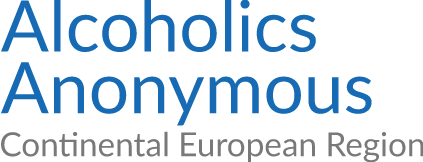The answer why so few health professionals refer problem drinkers to AA may surprise you. But to a recovering alcoholic, it makes perfect sense. This post is exclusively for AA members in Europe who could use a 10x boost to their serenity and peace of mind this holiday season.
10 x ROI
Hi all, this post is for AA members within the Continental Europe Region (CER) who have a desire to get a 10x return on a 5-min. time investment. If that’s you, feel free to scroll down where there’s a link to a SURVEY and click answers to 8 questions. I can’t promise when your 10x peace of mind happiness dividend will pay out, but I absolutely guarantee it will.
FIRST THINGS FIRST
My name is Joel B. and I’m an alcoholic. I’m also our region’s HLO (Health Liaison Officer). This means I’m leading members’ outreach initiatives to health professionals. Professionals like psychiatrists, therapists, MD’s, rehab or clinic staff & administrators, psychologists, GP’s and the medical schools who train new doctors and nurses. If one of these is you, or you have experience working with these professionals, we especially ask for your participation in the survey.
OUR STORIES DISCLOSE
The World Health Organization reports the European Region has the highest proportion in the worldof total ill health and premature death due to alcohol. But as many recovering AA’s stories disclose, our physical and mental health problems grew as the disease of alcoholism progressed. Visits to doctor’s offices and hospital emergency rooms were frequent. But few medical professionals refer alcoholics to AA or to seek treatment. Why is this? The answer goes to the heart of why AA outreach to health professionals this coming year is so critical.
THE DOCTOR’S OPINION
In a Harvard Magazine article about alcoholism, George Vaillant M.D. was quoted as saying that 50 percent of the people brought into emergency rooms with fractures are there as a result of alcohol, but that blood-alcohol levels are never checked. Dr. Vaillant expounded on doctors’ “oversight” in an interview published by Grapevine Magazine, May 2001.
——————————————————–
Grapevine: How do medical professionals view alcoholism today?
George Vaillant: What happens in emergency rooms is actually much more dramatic than that (Harvard article). Probably 50 percent of all the people brought into emergency rooms had blood-alcohol levels over .25 – which is enough to make any non dependent person comatose, not just prone to accidents. And even though this is a clear biochemical fact staring doctors in the face, no referral is made – nothing is done about it – because when it comes to treating alcoholism, the medical profession feels so helpless, so without hope. And for a doctor, feeling powerless is reason enough to put his head in the sand.
Grapevine: Why do you think medical professionals feel that way?
George Vaillant: You have to remember that very few doctors have ever seen a recovered alcoholic. If you’re recovered, you don’t have any reason to tell your doctor you’re an alcoholic. And if you’re not recovered, you go back to see him a hundred times, so you’re forever etched in his memory. Consequently, doctors overcount the failures and have no knowledge of the successes. They don’t understand that 40 percent of all recovery has probably occurred through Alcoholics Anonymous.
Read Dr. Vaillant’s full interview to hear what he thinks can be done to change health professionals’ perceptions.
——————————————————–
WILLPOWER
After undergoing brain surgery in 2015, I began seeing a neurologist (who also had licenses to practice psychiatry and psychology) for recurring depression, a common after-effect of stroke victims. But despite telling him I was a recovering alcoholic and addict, the good doctor prescribed antidepressant medication and “use more willpower” to deal with my dark mood swings.
HEARSAY
I’m sure that doctor and his peers are deeply knowledgeable in their respective medical fields. And I’m sure they have their patients’ best interests at heart. But they have little or only hearsay understanding of AA’s program of recovery. Consequently, it falls to those of us in recovery to bring our solution to them.
THEORY vs PRACTICE
I’ve never met a recovering alcoholic who disagreed in theory with our primary purpose of carrying the message to the still suffering alcoholic. But in practice, in taking action? Not so many. Truthfully, I once was one who took satisfaction hearing about others doing the footwork. But once I started volunteering, first at Group level, then IG, then Region and later Conference, I experienced evidence of the direct correlation between doing service and my personal happiness.
Ready to get your 10X return on investment? Then give 5 minutes to complete the SURVEY linked below to help me, and the HLO working group, kick off the “Health Liaison Outreach to Professionals” (HLOP) 2022 campaign.
IT DEPENDS
The experience of AAs doing outreach to health professionals is rich in successes, failures and lessons learned. But it all depends on IG’s, groups and local fellowships willingness to reach out to their respective professional communities. Consequently, this survey is a first step making an inventory of our Region’s willingness and request for input to better understand where to focus energy and resources.
Take the survey. Refer folks to this post at local meetings. Share the survey link with your AA chat groups. And enjoy spending your ROI with friends family and yourself through this hectic month and beyond!
LINK TO SURVEY or copy/paste https://forms.gle/GuTUuwyhSLnDoyEk7
Joel B., Zurich
Photo Credit: Usman Yousaf, unsplash

